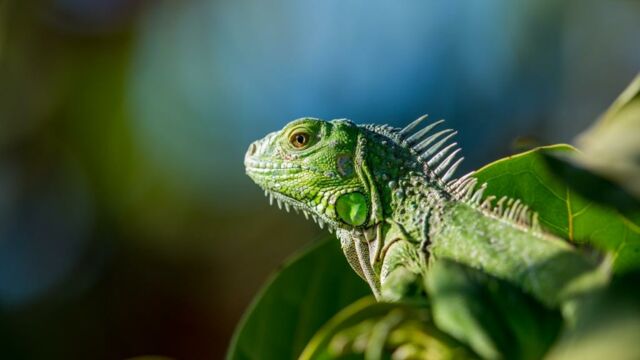It's a very unusual story that took place in Costa Rica. This one sounds like the start of a bad joke: it includes a three-year-old girl on holiday, a wild iguana and... a sweet dessert! Does this seem strange to you? We explain it all.
Discover our latest podcast
A hungry iguana
According to a press release issued at the European Congress of Clinical Microbiology & Infectious Diseases, this incident took place on a beach in Costa Rica. While she was peacefully enjoying a pastry, a three-year-old girl had a strange encounter with a hungry iguana. The animal is said to have emerged and bitten her left hand before running away with her piece of cake.
Very quickly, the little girl was treated in a clinic with antibiotics, her wound being only superficial. The story, already an unusual one, could have ended there... except that a couple of months later, her hand started to swell. The release indeed states:
Five months later, however, the parents noticed a small lump on the back of the left hand that gradually grew larger, and the skin became red and slightly sore over the next three months.

Read more:Nurses' shock as they spot something unusual on the newborn baby's stomach
Rare infection with Mycobacterium marinum
In the meantime, the little girl returned to the United States. She was taken to Stanford Hospital, California, where doctors performed several tests. Initially, they thought she had a ganglion cyst, but the press release reveals something else.
The orthopedic surgeon who removed the 2-cm thick-walled mass noticed pus draining from the wound, indicating an infection.

Read more:
⋙ Doctors shocked to find this fragile object inserted into man's anus
⋙ Alarm over mysterious 'nosebleed' disease that can kill in over 24 hours, should we be worried?
After testing, doctors realized she was infected with Mycobacterium marinum, an atypical bacteria that sometimes causes skin infections in humans, as explained by Santé Publique France. According to Dr Jordan Mah, who treated the little girl:
The bite resulted in colonization with a bacterium rarely found in humans and demonstrates that iguanas can carry harmful bacteria capable of causing serious infections. This may help inform health professionals about lesser-known bacterial infections following unusual zoonotic exposures.
Even though this bacteria is resistant to most conventional antibiotics, the little girl was able to be treated properly and her health is not in danger.
This article has been translated from Gentside FR.
Sources used:
European Congress of Clinical Microbiology & Infectious Diseases: Iguana stole my cake! and left behind a nasty surprise
Santé Publique France: Enquête sur les infections à Mycobacterium marinum en France de 1966 à 1998















